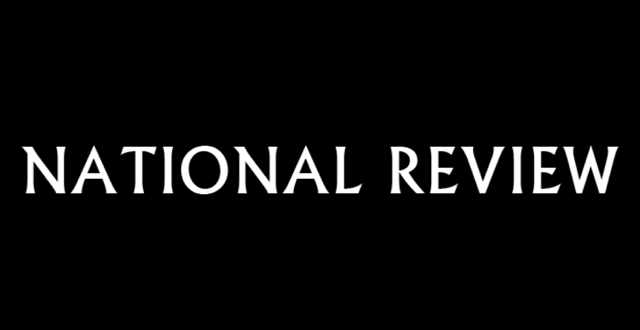NATIONAL REVIEW: A New York City ban on styrofoam for food service is a costly and wasteful way to soothe wealthy liberals’ consciences.
Mayor Bill de Blasio says he’s going to implement his styrofoam ban starting on January 1, 2019, now that a court has ruled that the diktat was not “arbitrary and capricious.” Although the legal ruling was sound, the policy isn’t. It’s a job-killing, working-class-punishing, environmentally unnecessary scam. And it may be coming to your town next.
Remember when nanny-staters tried to mandate the recycling of almost everything, warning that if we didn’t, we’d fill up landfills and destroy the oceans? Oh, how the tide has turned.
In 1996, New York Times Magazine columnist John Tierney’s essay “Recycling Is Garbage” documented that “recycling does sometimes makes sense — for some materials in some places at some times. But the simplest and cheapest option is usually to bury garbage in an environmentally safe landfill. And since there’s no shortage of landfill space (the crisis of 1987 was a false alarm), there’s no reason to make recycling a legal or moral imperative.” The piece reportedly drew the most hate mail ever sent to the magazine.
Now it’s the big-government types who oppose recycling certain items, from plastic straws to styrofoam, because it’s too costly. Instead, they insist, we should just ban them. But don’t be fooled. Bans are the more coercive cousins of sin taxes, imposing heavier costs directly on those who can least afford them.
In 2015, a judge overturned the city’s initial attempt to ban styrofoam, calling it “arbitrary and capricious” because it relied on an unsupported claim that recycling food-service styrofoam “was neither environmentally effective nor economically feasible.”
But the ban is back, bolstered by a litigation-driven Sanitation Department report insisting that “post-consumer Food-Service Foam cannot be recycled in a manner that is economically feasible or environmentally effective for New York City.”
The report was enough to satisfy the legal standard that policies not be “arbitrary and capricious,” but it isn’t otherwise worth the recycled paper it’s written on, because it considered only one side of the equation: It looked only at the cost of recycling styrofoam, which isn’t cheap, but ignored the costs of the alternative, an outright ban.
The study looked only at the cost of recycling styrofoam, which isn’t cheap, but ignored the costs of the alternative, an outright ban.
A 2013 industry report estimated that the lowest-cost alternatives to styrofoam would cost an estimated at $91.3 million annually. According to the Independent Institute, “For every $1 spent on foam containers, alternative packaging will cost food vendors $1.94. That’s effectively a 94% tax (on food packaging) to satisfy the environmental desires of legislators and upper-income elites.”
Had the report weighed the costs of a ban, in terms of the burden it would place on small businesses and the low-income workers who value styrofoam for its ability to insulate food at a low cost, the feasibility of recycling it would become as obvious as the sun in San Diego.
Similarly, the politicos at Sanitation ignored what New York’s Strongest (the municipal garbagemen’s nickname for themselves) will have to pick up instead.
How many paper plates does it take to replace a styrofoam plate? Apparently none, according to the report. Perhaps that’s the magic math that explains how the styrofoam ban, a key element of de Blasio’s misnamed “Zero Waste by 2030” plan, will reduce the amount of disposed waste by 90 percent. The city assumes that soiled take-out containers will all be neatly recycled. Rubbish.
The analysis also ignores the food waste or, worse, food-borne illness caused by using alternatives that lack styrofoam’s ability to keep cold food cold and hot food hot.
San Diego successfully recycles styrofoam clamshells to protect its beautiful beaches. Nonetheless, activists there advanced legislation last week that is even more draconian than New York City’s coming ban. There’s no good reason for either city to ban the products, which can be either recycled or landfilled.
The problem with the epidemic of plastic bans, whether it’s foam, bags, or straws, is the hubris of regulators who insist they know what’s best for the people in every circumstance of their lives. Disdain for individual decision-making runs so deep that the regressive nature of these policies is no longer considered a bug in social engineering, but a feature.
Former NYC mayor Michael Bloomberg, speaking in April about sin taxes, admitted, “Some people say, well, taxes are regressive. But in this case, yes they are. That’s the good thing about them because the problem is in people that don’t have a lot of money. And so, higher taxes should have a bigger impact on their behavior and how they deal with themselves.”
People who don’t have a lot of money tend to use inexpensive convenience items, such as plastic bags, straws, and styrofoam. But a mere tax to cover the cost of recycling isn’t good enough for Mayor de Blasio. Soda taxes, Bloomberg’s favorite way to control behavior, at least give consumers some degree of choice. When it comes to plastics, however, Mayor de Blasio’s nanny state doesn’t want to take any chances.




